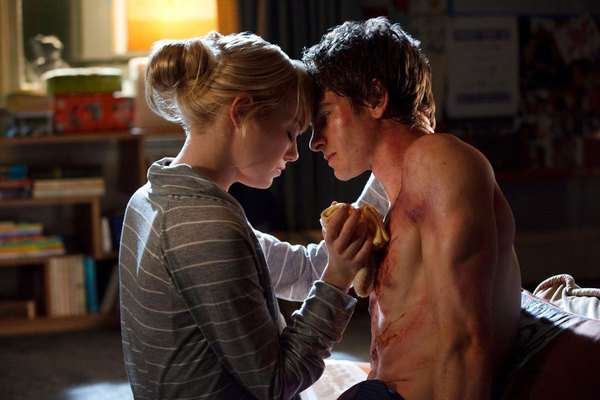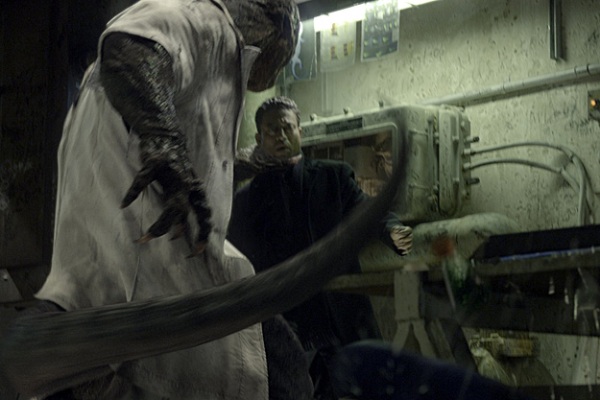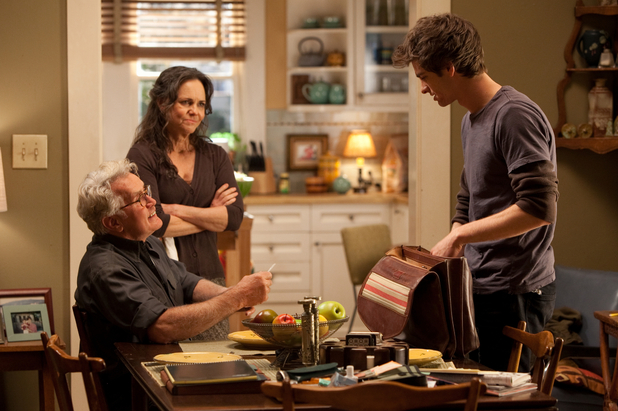The Amazing Spider-Man Review
Back in 2002, Sony Pictures and filmmaker Sam Raimi brought one of Marvel Comics’ most popular superheroes, Spider-Man, to big screen for the first time. Peter Parker’s story captivated audiences and set the record for the most money made on an opening weekend.
Now, let’s imagine none of that ever happened. Let’s pretend director Marc Webb and Sony brought movie-goers “The Amazing Spider-Man” for the first time ever in 2012. What’s the result? A box-office record would be doubtful given the era we live in, but a powerful story that captivates audiences — absolutely. It would’ve been hailed as just as if not more of an incredible film in 2002.
Well, it’s not 2002, and we can’t pretend forever. As such, the one major thing that will draw ire toward “The Amazing Spider-Man” is that it tells a story that came to the big screen 10 short years ago. It’s not a conversation that would even happen if this were 2032, but this context is a reality.
For a child who is now a teenager, this could turn out to be a defining film with two stars of a younger generation in Andrew Garfield and Emma Stone, but a good chunk of audience members will wait and wait for the film to deliver some revelatory change to the story they already know that never comes.
It’s always important to be aware of your own expectations, but if you want to be able to appreciate the multiple strengths of “The Amazing Spider-Man,” it’s a recommendation that can’t be taken lightly. So here it goes: this is Spider-Man’s origin story. There are new actors, and some new characters that make it look different, but it’s Spider-Man’s origin story.
To come clean on biases, I love Spider-Man’s origin story. There’s nothing more powerful in the comic universe than the way Peter Parker comes of age and into his role as a hero in a traumatic flash, losing someone he loves when he chooses to act thoughtlessly and selfishly. So on one hand, you could say I have a predilection toward this movie because it tells that story; on the other hand, I’m very particular about it. I need to feel it or I’ll be disappointed. In this “Spider-Man,” you definitely still feel it.
The presentation of the movie is different than the 2002 film, but its core and messages are the same. Uncle Ben doesn’t say “with great power comes great responsibility,” but he basically paraphrases it. Call that repetitive if you will, but it’s absolutely crucial to Spider-Man. It would be dishonorable toward the comics to handle it any other way, not to mention give little reason for you to care about Garfield’s version of Peter Parker.
Different from the original film, Peter is severely affected by a complete lack of resolution regarding his parents. He loves his Uncle Ben (Martin Sheen, who is superb) and Aunt May (Sally Field), but his parents’ disappearance haunts him, so the discovery of an Oscorp file belonging to his father and a lead in the form of man who was his father’s old research partner, Dr. Curt Connors (Rhys Ifans), sends Peter’s curiosity into overdrive. Doing so lands him on the path to getting bit by the radioactive spider and becoming Spider-Man.
Peter goes from extraordinary teen to masked crime-fighter for selfish reasons after the death of Uncle Ben. Whereas Peter believes he gets his revenge in the 2002 film (we learn he didn’t in “Spider-Man 3”), failing to find his uncle’s killer adds more painful irresolution to his life. It’s a void he eventually realizes he can fill with heroism, and considering he gives Dr. Connors the formula that will later turn him into the The Lizard, stopping him is a chance to finally correct one of his mistakes.
Peter also finds a confidant in Gwen Stacy (Stone), daughter of the police chief (Denis Leary) and the man who wants Spider-Man to answer to the law. Gwen actually learns of his identity, and the two even work together to stop Connors, another refreshing change from the damsel in distress motif that permeated all of Raimi’s films. Yet Peter and Gwen’s relationship still has that tragic quality true to the comics.
From the romance to the science to the action, “The Amazing Spider-Man” has a decidedly more realistic feel than the Raimi films (and little of their campy humor), a fact likely to go under-appreciated given that we live in a post-The Dark Knight world. To be fair to that first trilogy, however, it did ground itself in real themes and emotions, but so does this movie. The second and third Spider-Man movies share a screenwriter with this reboot in Alvin Sargent, and the way the story is constructed feels extremely similar to those previous adventures.
Even with all the quality writing full of strong themes and proper character motivation, “The Amazing Spider-Man” gets long in the tooth, especially as you wait for the origins to be fully rehashed with Peter getting his powers, playing around with his powers, etc. The third act, however, turns out to be an exhilarating finish and then some. The action (both in choreography and CGI in all acts of the movie) knocks the original trilogy off a skyscraper. And when it seems like the emotional flourish won’t come, the script finds some fitting and effective moments of catharsis for all the characters.
Yes, it’s frustrating seeing something similar unfold that’s fresh in our minds, but for a new Spider-Man franchise to emerge in the dust of the old one, these origin essentials needed to be covered, and they’re covered exceptionally well. We have a whole new cast of lovable characters now, and Sony and Webb have earned their license (and our trust) to take the trilogy where they want it to go, which looks to be deeper into the mystery of the Richard and Mary Parker.
4/5 Stars
The Amazing Spider-Man
Directed by Marc Webb
Written by James Vanderbilt, Alvin Sargent, Steve Kloves, Stan Lee and Jack Kirby (characters)
Starring: Andrew Garfield, Emma Stone, Rhys Ifans, Martin Sheen, Denis Leary, Sally Field








0 Comments
You can be the first one to leave a comment.